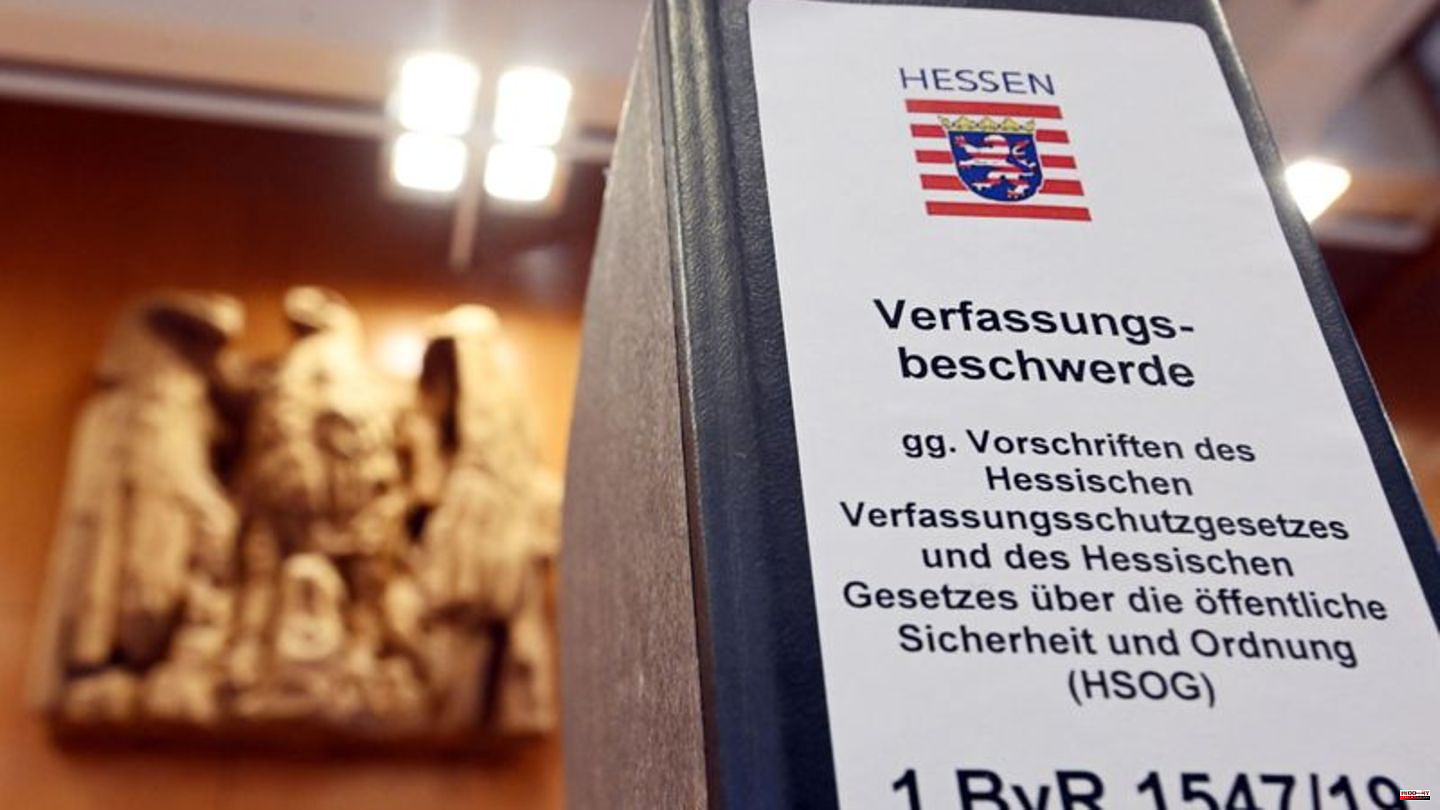When searching for potential criminals, the police can analyze large amounts of data using software - but the Federal Constitutional Court sets strict requirements for their use. The regulations in Hesse and Hamburg have not yet met these requirements. The Karlsruhe judges therefore declared them unconstitutional. However, a constitutional design is possible, said the chairman of the First Senate, Court President Stephan Harbarth, at the verdict on Thursday.
The program, which could potentially be used nationwide, combs through the various police databases to discover cross-connections that investigators might otherwise never notice. This should help the police to track down potential perpetrators before they can commit a crime.
This is also a legitimate purpose for the constitutional judges. They recognize that the new technology "can be used to gain relevant knowledge that could not be obtained in any other way that protects fundamental rights". However, the largely identical regulations in Hesse and Hamburg currently give the police such a free hand that they are not proportionate.
They allowed the police "to create comprehensive profiles of people, groups and milieus with one click". At the same time, they allowed "a broad inclusion of data from uninvolved persons, which could therefore be subjected to police investigative measures," according to the judges. By means of data analysis, "new personality-related information can be generated that would otherwise not be accessible". In view of this very high "intervention weight", the use of the software has so far been permitted in far too many cases.
Around 14,000 queries per year in Hesse alone
In Hesse, where the police have been working with the software since 2017, the legislator has until the end of September at the latest to redefine the problematic regulation. Until then, it will remain in force with significant restrictions. The technology is not yet used in Hamburg, where the court declared the passage void.
The verdict should also be analyzed in detail in other countries. North Rhine-Westphalia also uses the software. Bavaria is currently working on the introduction - as a pioneer for other states and the federal government. The Free State has concluded a framework agreement with the US company Palantir so that all other police forces can adopt its program without additional procurement procedures.
The Society for Freedom Rights (GFF), which initiated the review in Karlsruhe, said the verdict would spread throughout the country. It has "significantly reduced the risk of innocent citizens being targeted by the police," said GFF representative Bijan Moini. The court has formulated strict guidelines for the use of intelligent software in police work. "This was important because the automation of police work has only just begun."
Hessendata - as the program is called - is used in particular to combat terrorism, organized crime and child pornography. With around 14,000 queries a year, more than 2,000 police officers across the country work with the system. They are only activated for their area of responsibility.
The judgment relates exclusively to data analysis for the preventive fight against criminal offenses. Journalists, lawyers and activists appeared as plaintiffs. In autumn, the GFF submitted a third constitutional complaint about the NRW software. However, this was not taken into account in the procedure.












